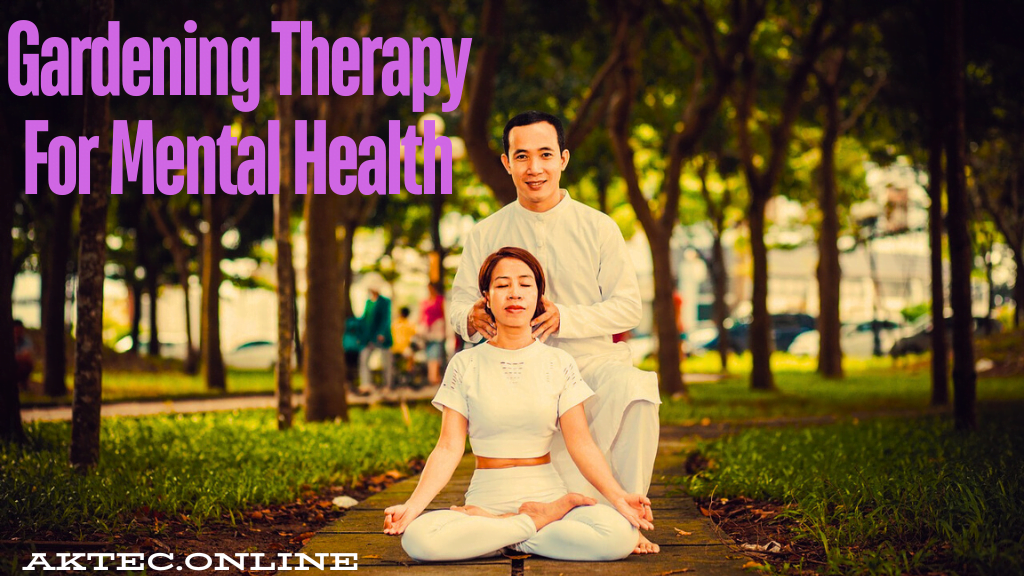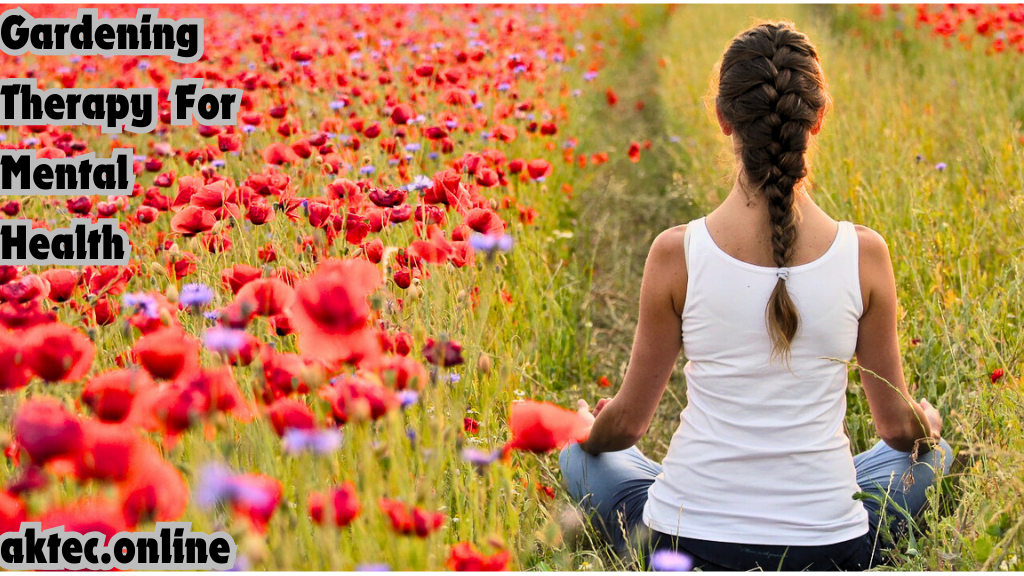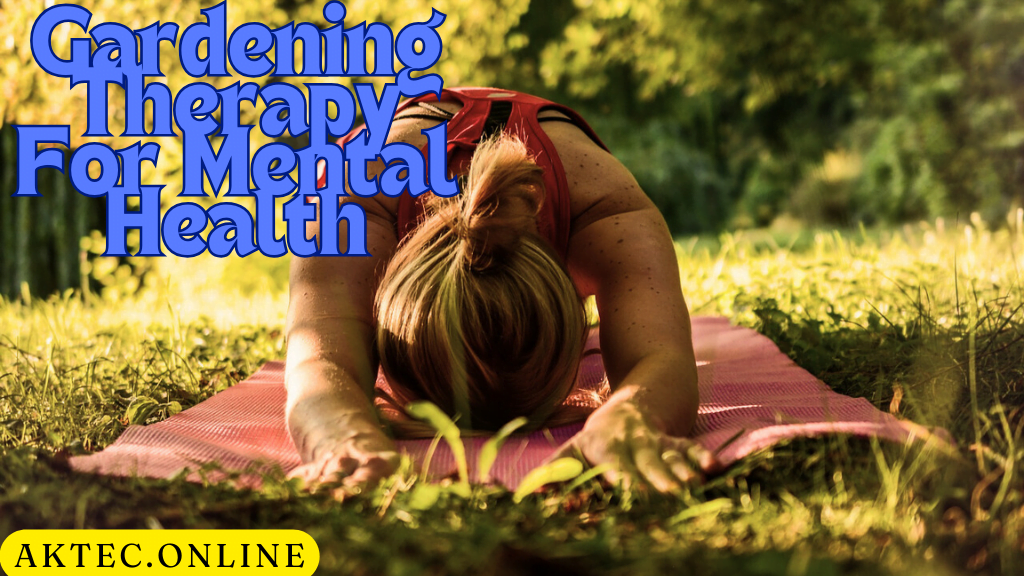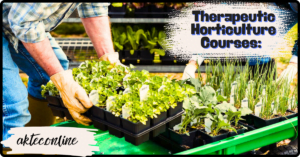
Feeling down? Sow happiness with gardening therapy. Discover 3 ways nurturing plants can lift your spirits and make you bloom
Introduction
Gardening therapy for mental health is the practice of using gardening activities and the natural world to improve a person’s physical, mental, and emotional health.
It’s a structured program typically led by a trained therapist and often incorporated into rehabilitation programs for various conditions like depression, anxiety, dementia, and substance abuse.
However, the benefits of gardening extend far beyond clinical settings. Even simply tending to a home garden can significantly enhance your mental well-being. Let’s delve deeper into the science behind gardening therapy for mental health and explore the powerful ways it can transform your life.
The Psychological Benefits of Gardening
A Sanctuary for Your Mind
Gardening therapy for mental health offers a multitude of psychological benefits, creating a safe haven for your mind amidst life’s daily pressures.
Stress Reduction and Relaxation
The repetitive motions of planting, weeding, and caring for plants create a calming and meditative state. This repetitive nature acts like a form of mindfulness practice, drawing your focus away from worries and anxieties and placing it on the present moment.
Studies by the American Horticultural Therapy Association (AHTA) have shown that gardening therapy for mental health reduces stress hormones like cortisol, promoting deep relaxation and a sense of inner peace.
Improvement in Mood and Self-Esteem
Witnessing the fruits (or vegetables!) of your labor – literally – brings immense satisfaction. Nurturing plants from seeds to vibrant blooms or bountiful harvests fosters a sense of accomplishment and boosts self-esteem.
Seeing your garden flourish provides a tangible reminder of your capabilities and connection to nature. This sense of accomplishment can be particularly empowering for individuals struggling with depression or low self-worth.
Enhanced Cognitive Function
Gardening therapy for mental health isn’t just about physical activity; it engages your mind as well. Planning your garden layout, researching plant needs, and problem-solving pest issues all stimulate cognitive function. Studies have shown that gardening therapy can improve memory, focus, and even decision-making skills, particularly for older adults experiencing cognitive decline.
Cultivating Mindfulness Through Gardening

A Focus on the Present Moment
Gardening therapy for mental health can be particularly effective for promoting mindfulness. Mindfulness is the practice of paying attention to the present moment without judgment. The repetitive and focused nature of gardening activities naturally lends itself to mindfulness practice. Here’s how
Focus on Sensory Details
As you tend to your garden, pay attention to the sensory details around you. Feel the texture of the soil, smell the fragrance of blooming flowers, listen to the buzzing of bees, and observe the vibrant colors of your plants. This sensory awareness helps anchor you in the present moment.
Appreciate the Growth Cycle: Witnessing the growth cycle of plants from seeds to seedlings to full-fledged blooms or vegetables fosters patience and acceptance. It’s a gentle reminder that growth takes time and requires consistent care, just like our own personal growth.
Letting Go of Control
Nature has its own rhythm and pace. While we can nurture our plants, we can’t control them entirely. Gardening therapy for mental health teaches us to accept this lack of control and embrace the unpredictable nature of life.
Beyond the Benefits: Social Connection and Community Through Gardening
The benefits of gardening therapy for mental health extend beyond the individual. Gardening can be a social and communal activity that fosters connection and belonging. Here are some ways:
Community Gardening
Participating in community gardens allows you to connect with like-minded individuals who share a passion for nature. Sharing gardening tips, collaborating on projects, and simply enjoying the company of others can combat feelings of loneliness and isolation.
Gardening with Family and Friends
Inviting family and friends to help you with your garden creates opportunities for shared experiences and strengthens social bonds. Working together towards a common goal can be a bonding and rewarding experience.
Sharing Your Knowledge
If you’re an experienced gardener, offer to share your knowledge with others. Teaching others about gardening fosters a sense of purpose and accomplishment while contributing to the community.
Getting Started with Gardening Therapy for Mental Health
Gardening therapy for mental health is accessible to everyone, regardless of age, experience level, or available space. Here are some tips to get you started:
Start Small
Don’t overwhelm yourself with a vast garden plot. Begin with a manageable area on a balcony, patio, or even a windowsill. Container gardening is a great option for limited space.
Choose Plants Wisely
Select varieties suited to your climate and require minimal maintenance if you’re a beginner. Herbs are a great starting point as they thrive in pots and offer a constant reward with fresh culinary additions. Research sun exposure needs of different plants and group them accordingly to optimize growth and make maintenance easier.
Plan Your Garden
Sketch a simple layout of your garden space, considering sun exposure and plant needs. This will help you visualize your garden and make informed decisions about plant placement.
Activities to Enhance Your Gardening Therapy Experience
Mindful Gardening
Dedicate specific times for mindful gardening. Focus on the sensory details mentioned earlier and appreciate the present moment. Let go of worries and simply be present with the act of caring for your plants.
Create a Meditation Space
Designate a quiet corner in your garden with a comfortable seat surrounded by your plants. This creates a dedicated space for reflection and relaxation amidst the natural beauty of your garden.
Gardening with Intention
Set specific goals for your garden. Do you want to grow vegetables for healthy eating? Attract pollinators like butterflies and bees? Create a vibrant space for relaxation? Having a clear intention behind your garden adds purpose and meaning to the experience.
Gardening Therapy for Mental Health: Resources and Support

Gardening therapy for mental health is a growing field with a wealth of resources available. Here are some ways to find support and further your exploration:
American Horticultural Therapy Association (AHTA)
The AHTA provides information on the benefits of gardening therapy, directories of certified therapists, and educational resources.
Local Community Gardens
Many communities offer community gardens that provide shared plots, tools, and a sense of belonging. Connect with your local parks department or gardening organizations to find one near you.
Online Gardening Resources
Numerous websites and online communities offer gardening tips, tutorials, and forums for connecting with other gardening enthusiasts.
Conclusion
Gardening therapy for mental health is a powerful and accessible tool for cultivating inner peace, improving mood, and reducing stress. It allows you to connect with nature, engage in gentle physical activity, and witness the beauty and wonder of growth. By nurturing your garden, you nurture yourself.
So, get your hands dirty, embrace the joy of growth, and watch your well-being blossom alongside your beautiful plants. Remember, even small steps towards incorporating gardening therapy for mental health into your routine can make a significant difference in your overall well-being.
FAQs
What is gardening therapy for mental health?
Gardening therapy for mental health is the practice of using gardening activities and the natural world to improve a person’s physical, mental, and emotional well-being. It can be a structured program led by a trained therapist or a more informal practice incorporated into your daily routine.
What are the benefits of gardening therapy for mental health?
There are numerous benefits to gardening therapy for mental health, including:
Reduced stress and anxiety
Improved mood and self-esteem
Enhanced cognitive function
Increased physical activity
Connection to nature and the outdoors
Development of mindfulness practices
Opportunities for social connection and community
Do I need any experience to participate in gardening therapy for mental health?
Absolutely not! Gardening therapy is accessible to everyone, regardless of age, experience level, or available space. You can start small with a few pots on a balcony or windowsill.
What are some tips for getting started with gardening therapy for mental health?
Begin with a manageable area.
Choose plants suited to your climate and require minimal maintenance if you’re a beginner.
Plan your garden space considering sun exposure and plant needs.
Dedicate time for mindful gardening, focusing on the present moment.
Create a meditation space in your garden for relaxation.
Set goals for your garden, whether it’s growing food, attracting pollinators, or creating a beautiful space.
Where can I find resources for gardening therapy for mental health?
Here are some resources to help you get started:
American Horticultural Therapy Association (AHTA):
Local community gardens: Contact your local parks department or gardening organizations.
Online gardening resources: Many websites and online communities offer tips, tutorials, and forums for connecting with other gardening enthusiasts.
Can gardening therapy for mental health help with specific conditions?
Studies have shown that gardening therapy can be beneficial for various mental health conditions, including:
Depression
Anxiety
PTSD
ADHD
Dementia
Eating disorders
Do I need a therapist to participate in gardening therapy for mental health?
While there are structured programs led by trained therapists, you can also incorporate gardening therapy principles into your routine independently. However, if you’re struggling with a specific mental health condition, consulting a therapist can provide additional support and guidance.








